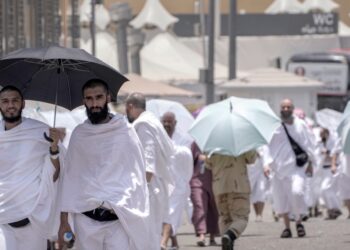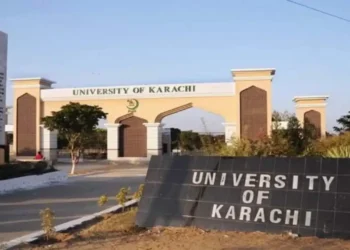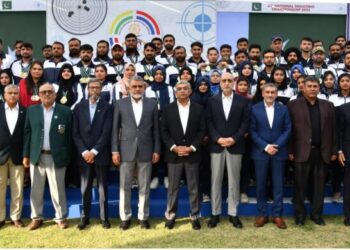![]() Follow Us on Google News
Follow Us on Google News
The nation is celebrating the 145 birth anniversary of the founder of Pakistan Quaid-e-Azam Muhammad Ali Jinnah today with traditional zeal and fervour.
It was Quaid-i-Azam Mohammad Ali Jinnah, who steered the Muslims of the Indian sub-continent during the most desperate times and enabled them to follow one cause and withstand heavy odds to achieve independence.
During his lifetime, he brought the wisdom to walk in the path of honor, the courage to follow his convictions, and an abiding compassion for others. He enriched us all by the nobility of his spirit.
Let’s take an in-depth review of the life, works, and message of Quaid-e-Azam Muhammad Ali Jinnah, Founder of the Islamic Republic of Pakistan.
Muhammad Ali Jinnah and its early life
Quaid-e-Azam is best described by Professor Stanley Wolpret in his book ‘Jinnah of Pakistan’: “Few individuals significantly alter the course of history. Fewer still modify the map of the world. Hardly anyone can be credited with creating a nation-state. Muhammad Ali Jinnah did all three.”
Mohammed Ali Jinnah was born on 25 December 1876 in Karachi. Quaid’s ancestors were Hindu Rajput who converted to Islam. Jinnah’s family belonged to the Ismaili Khoja branch of Shi’a Islam.
Jinnah studied at Bombay University and at Lincoln’s Inn in London. In 1892, at the age of only 16, he sailed to England to study and in 3 years, at age 19, he became the youngest Indian to be called to the bar in England.
During his student years in England, Jinnah came under the influence of 19th-century British liberalism, and his education included exposure to the idea of the democratic nation and progressive politics.
However, later as an Indian intellectual and political authority, Jinnah would find his commitment to the Western ideal of the nation-state and the reality of Indian society of many religions, cultures and ethnic groups difficult to reconcile during his later political career.
In 1896 he returned to India and settled in Bombay. He then ran a successful legal practice in Bombay. He was already a member of the Indian National Congress, which was working for autonomy from British rule, when he joined the Muslim League in 1913. The league had formed a few years earlier to represent the interests of Indian Muslims in a predominantly Hindu country, and by 1916 he was elected its president.
Muhammad Ali Jinnah’s vision
However, as a new state, Pakistan was not lucky enough to enjoy the leadership of the Quaid-e-Azam for long, as being seriously ill since long, he left this world on 11 September 1948.
Since Quaid-e-Azam knew that he may not live longer, he gave his vision of how Pakistan should be made a great state, in a series of speeches delivered at various forums in Pakistan, as a Governor-General, from 14 August 1947 to 11 September 1948.
As part of his vision, Quaid-e-Azam said, “The first duty of the state is to maintain law and order, to protect the life, property and religious beliefs of its people. The biggest curses of bribery, corruption, black-marketing, nepotism and jobbery, inherited from India, should be put down with an iron hand.
“As citizens of Pakistan, we have equal rights, privileges, and obligations, irrespective of colour, creed, cast and religion. You are free, you are free to go to your temples, to mosques, or to any other place of worship in Pakistan,” he added.
About foreign and defence policies, the Quaid said, “We want to live peacefully and maintain cordial and friendly relations with our immediate neighbours and with the world at large. The best way in which we can serve the cause of peace is by removing the temptation from the path of those who think that we are weak and, therefore, they can bully or attack us.”
Mr. Jinnah stated, “I am sure that the Constitution of Pakistan will be of a democratic type, embodying the essential principles of Muslim democracy. Our salvation lies in following the golden rules of conduct set for us by the Prophet of Islam.”
Quaid-e-Azam stated, “The State bank of Pakistan should evolve an economic system compatible with Islamic ideas of social and economic life. The Western economic theory and practice will not help us in achieving our goal of creating a happy and contented society.”
Today’s India and Quaid’s struggle
Muslims in India have been increasingly at risk since the Hindu nationalist Bharatiya Janata Party (BJP) government led by Prime Minister Narendra Modi was first elected in 2014.
On December 12, 2019, the Modi administration achieved passage of the discriminatory Citizenship (Amendment) Act (CAA). Under the act, for the first time in India, religion is a basis for granting citizenship.
The arrival of US President Donald Trump India was overshadowed by deadly protests, in which more than 42 people, mostly Muslims, were killed. Dozens of homes were set on fire, and ambulances were barred from entering Muslim areas.
After the establishment of Pakistan, when the people were turning to the new Islamic state in 1947, the Sikhs and Hindus had proved the two-nation ideology true by inflicting a similar doomsday on the Muslims. Even today, no minority in India, including millions of Muslims, Sikhs and Christians, are safe from extremist Hindus.































